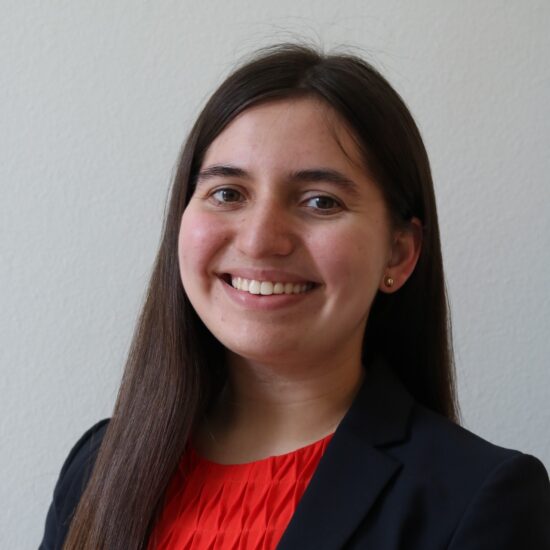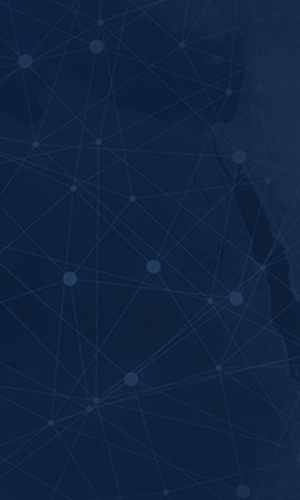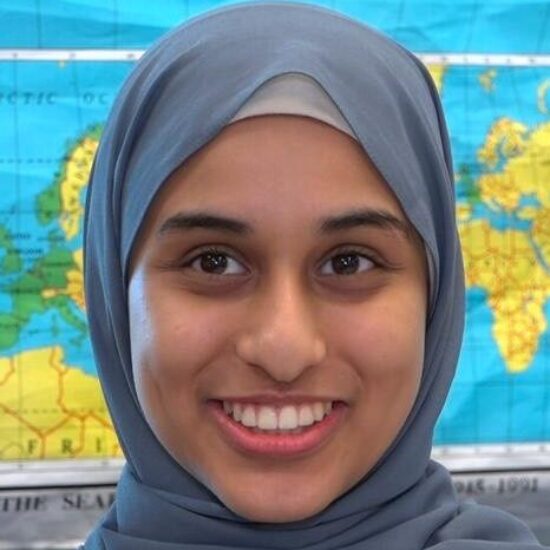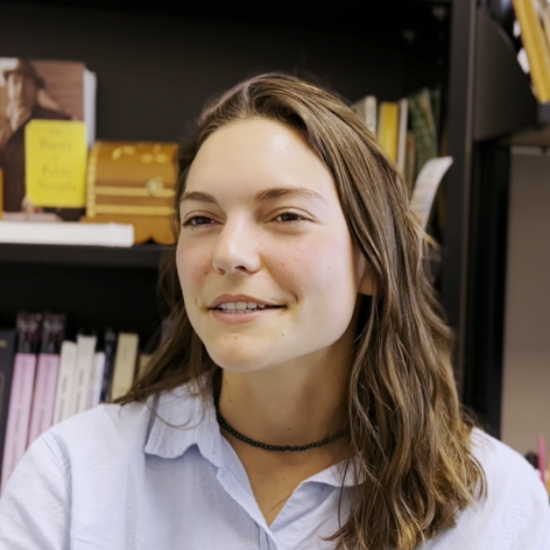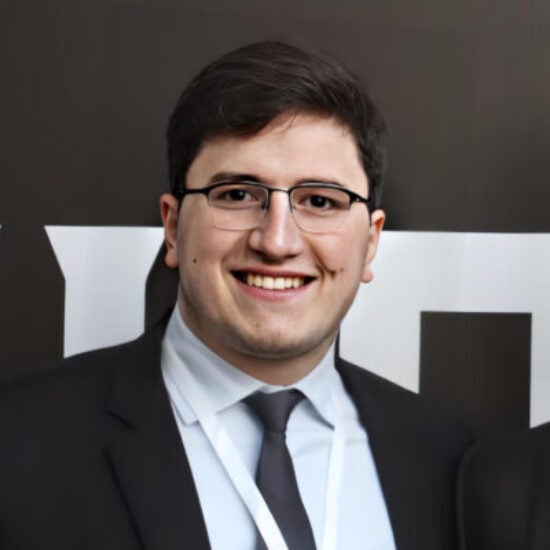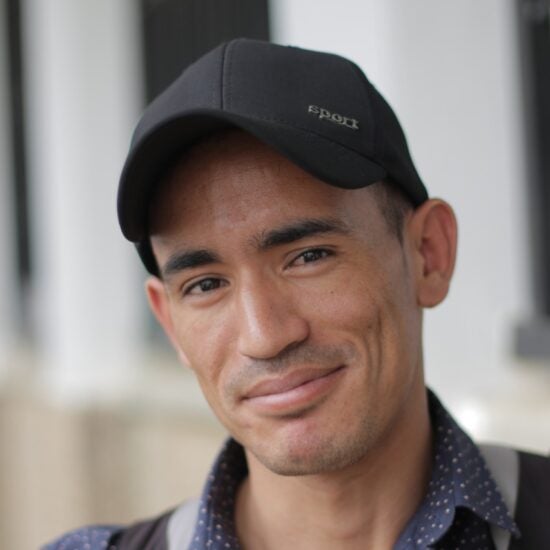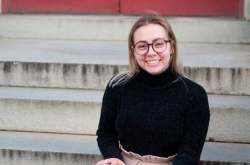 Through her participation in Soliya’s Connect Global: US-MENA in 2017, 22-year-old Nicole Leonard gained clarity around her career goals and realized she could be an effective champion for public policy if she changed her major to political science. So that is exactly what she did. Today, the Western Kentucky University alumna supports lawyers and lobbyists working with policymakers to improve and expand access to publicly funded health and food assistance programs for low income households in Tennessee. Nicole manages digital communications for a state-wide organization that promotes access to and enrolls people in public benefits programs.
Through her participation in Soliya’s Connect Global: US-MENA in 2017, 22-year-old Nicole Leonard gained clarity around her career goals and realized she could be an effective champion for public policy if she changed her major to political science. So that is exactly what she did. Today, the Western Kentucky University alumna supports lawyers and lobbyists working with policymakers to improve and expand access to publicly funded health and food assistance programs for low income households in Tennessee. Nicole manages digital communications for a state-wide organization that promotes access to and enrolls people in public benefits programs.
“The Connect Program was a great opportunity to gain insight into how people of differing cultural and geographic backgrounds communicate and to educate myself on how the leaders of our country are perceived from the perspectives of people abroad and across the nation,” said Nicole. That insight has become a vital part of how she does her job today. Nicole recollects the diverse viewpoints she encountered during her interactions with peers from around the world when organizing statements for major press outlets or crafting outreach and education campaigns that require her to predict the public response to policy suggestions. “It was fascinating to realize how little we are aware of international perspectives and what the policy implications of the decisions our leaders make at home are on other countries.”
To come to this valuable realization, Nicole had to push herself out of her comfort zone and acquire what she calls a “massively important skill that people struggle with.” She is referring to active listening, a critical 21st century leadership skill. “Learning how to be an active listener in digital mediums was a major accomplishment for me. Letting myself be quiet for a minute. Making listening to the stories of other people be the number one thing you’re doing,” she said. The Connect Program creates an optimum environment for developing those human skills by bringing culturally and geographically diverse students together. The program is led by highly trained facilitators and engages participants in specific activities geared towards building cross cultural communication skills, including active listening and asking good questions.
In 2019, Nicole graduated with a BA in Political Science and a minor in Journalism. She cites enrolling in Professor Soleiman Kiasatpour’s class, through which she participated in the Connect Program, as one of the best decisions of her life. Initially, she expected a lecture-style class; instead, what she found was a virtual roundtable with participants from abroad.
To this day, Nicole remembers the stories of her groupmates and shares them with her family, friends, and peers. “I learned by experience how it’s so difficult to humanize from just textbooks; hearing and sharing personal stories was really interesting and very valuable,” she said.
What’s next for Nicole? Nicole wants to continue her work in digital organizing, but aspires to take it to the next level. One day, she hopes to join digital grassroots organizing on a larger scale for an organization such as the American Civil Liberties Union or The National Association for the Advancement of Colored People.
Connect Program is implemented by Soliya and is supported by the J. Christopher Stevens Virtual Exchange Initiative (JCSVEI). JCSVEI is a U.S. Department of State’s Bureau of Educational and Cultural Affairs program administered by the Aspen Institute.
 Through her participation in Soliya’s Connect Global: US-MENA in 2017, 22-year-old Nicole Leonard gained clarity around her career goals and realized she could be an effective champion for public policy if she changed her major to political science. So that is exactly what she did. Today, the Western Kentucky University alumna supports lawyers and lobbyists working with policymakers to improve and expand access to publicly funded health and food assistance programs for low income households in Tennessee. Nicole manages digital communications for a state-wide organization that promotes access to and enrolls people in public benefits programs.
Through her participation in Soliya’s Connect Global: US-MENA in 2017, 22-year-old Nicole Leonard gained clarity around her career goals and realized she could be an effective champion for public policy if she changed her major to political science. So that is exactly what she did. Today, the Western Kentucky University alumna supports lawyers and lobbyists working with policymakers to improve and expand access to publicly funded health and food assistance programs for low income households in Tennessee. Nicole manages digital communications for a state-wide organization that promotes access to and enrolls people in public benefits programs.